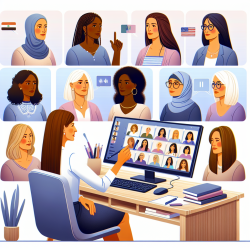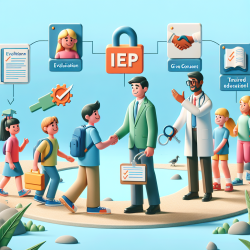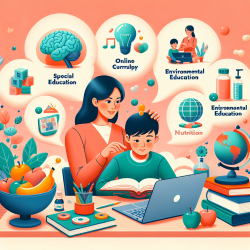In the realm of online therapy, understanding the nuanced experiences of clients with intellectual disabilities is crucial. A recent study titled Conversations about health—Sharing the personal experiences of women with intellectual disabilities by Cytowska and Zierkiewicz provides valuable insights that can enhance the effectiveness of online therapy services, especially for women with intellectual disabilities.
The study conducted focus group interviews with 20 women with intellectual disabilities in Poland, analyzing their experiences through constructivist grounded theory. Five general thematic areas emerged from the analysis: appearance and beauty, health and sickness, intimate relationships, friends and acquaintances, and self-determination. The participants did not view their womanhood or disability as burdens or health problems. Instead, they identified sources of oppression and strategies for self-advocacy, such as cooperation and claiming the right to self-determination.
Key Takeaways for Practitioners
1. Emphasize Self-Determination:
The study highlights the importance of self-determination for women with intellectual disabilities. Practitioners should encourage clients to make their own decisions and support them in advocating for their rights. This can be achieved by:
- Facilitating goal-setting sessions.
- Encouraging clients to express their preferences and choices.
- Providing resources and tools for self-advocacy.
2. Address Appearance and Beauty:
Appearance and beauty were significant themes for the participants. Practitioners should be sensitive to the importance of these aspects and incorporate discussions about self-image and self-esteem into therapy sessions. Consider:
- Offering workshops on self-care and personal grooming.
- Discussing the impact of societal beauty standards on self-esteem.
- Encouraging positive self-talk and body positivity.
3. Foster Healthy Relationships:
The study revealed that intimate relationships, friendships, and acquaintances are critical areas of concern. Practitioners can help clients build and maintain healthy relationships by:
- Providing social skills training.
- Discussing the dynamics of healthy and unhealthy relationships.
- Encouraging participation in social activities and support groups.
4. Holistic Health Approach:
Health and sickness were central themes in the study. Practitioners should adopt a holistic approach to health, considering physical, emotional, cognitive, and social aspects. Strategies include:
- Regular health check-ins during therapy sessions.
- Collaborating with other healthcare providers to ensure comprehensive care.
- Educating clients about healthy lifestyle choices and preventive care.
5. Promote Cooperation and Advocacy:
The participants identified cooperation and advocacy as essential strategies for overcoming oppression. Practitioners can foster a sense of community and collective advocacy by:
- Encouraging clients to join advocacy groups.
- Facilitating group therapy sessions where clients can share experiences and support each other.
- Educating clients about their rights and how to advocate for themselves.
Encouraging Further Research
While the study provides valuable insights, it also underscores the need for further research in this area. Practitioners are encouraged to explore additional studies and stay updated on the latest findings to continuously improve their practice. Engaging in professional development opportunities and collaborating with researchers can enhance the quality of care provided to clients with intellectual disabilities.
To read the original research paper, please follow this link: Conversations about health—Sharing the personal experiences of women with intellectual disabilities.










